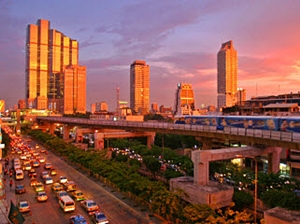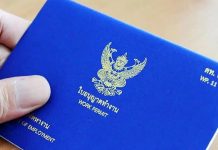BANGKOK, Jan 30 – The Thai economy bottomed out in November last year when the country was hit by the cumulative impact of severe flooding, but it is now likely to grow 5 per cent this year, said Somchai Sujjapongse, director-general of the Fiscal Policy Office (FPO).
The economy began to rebound in December with good signs of improving economic performance, in particular expanding consumption and private investment.

The recovery was reflected in a 9.8 per cent increase of value added tax (VAT) collection after having contracted one per cent in November. Imports of capital goods in December grew 13 per cent compared to a contraction of 4.1 per cent in the previous month, the FPO chief said.
“In the fourth quarter 2011, overall economy shrank five per cent due to substantial impacts from the flood crisis on the manufacturing sector. The number of foreign tourist arrivals was 4.4 per cent in the red and the 2011 economy grew only 1.1 per cent, down from the earlier targeted at 4.5 per cent, ” Mr Somchai said.
The Thai economy is beginning to gradually recover, however, in the first quarter of 2012, and is likely to expand two per cent and three per cent in the second quarter, five per cent in the third quarter and seven per cent in the last quarter. It will certainly grow five per cent in 2012 on average, the senior government official said.
The European Union debt crisis must be closely monitored as it impacts the global economy and confidence, Mr Somchai warned. The worst case scenario could see a Thai economic contraction by 0.8 per cent.
Other factors include the European and US economies, the US elections and post-election policies, while La Nina-induced natural disasters could affect exports and contribute to capital flow volatility. Moreover, Thai politics have not yet stabilised, he said.
In December, exports improved to only a two per cent contraction, compared to 14.4 per cent in the red in November, indicating rebounding December production capacity. The Manufacturing Production Index in December shrank 25.8 per cent, compared to 47.2 per cent contraction in November with major retractions in the auto and electronics industries.
Meanwhile, the agriculture sector has also recovered in particular rubber as well as a service sector with increasing foreign tourist arrivals. The country’s economic stability was evidenced by a 3.5 per cent inflation, 0.8 per cent unemployment and a US$17.5 billion international reserve, which triples short-term external debt.




